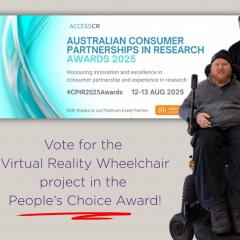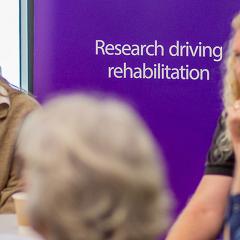Medical and allied health service use during acute and chronic post-injury periods in whiplash injured individuals
What is the research about?
People who experience a whiplash injury often experience neck pain in addition to other physical, psychological and social symptoms. As a result, treatment is sought from a variety of health professionals. Clinical management guidelines for whiplash injuries provide recommendations for the most evidenced based health services and management strategies. The limited data available about health service use are conflicting. A better understanding of current health service utilization will help provide information about compliance with clinical management guidelines. This study aimed to characterise health service use during acute and chronic post-injury periods in people who experienced a whiplash injury following a motor vehicle crash.
What did the researchers do?
Medical and allied health service use during acute (<12weeks) and chronic (12weeks to 2 years) post-injury periods were analysed in adults claiming compensation for a whiplash injury in Victoria, Australia (n = 37,315).
What did the researchers find?
We now have a better understanding of the healthcare services used by people with a whiplash injury. Immediately after a whiplash injury, the majority of claimants used emergency services. Claimants then tended to use medical services with similar numbers of claimants consulting with GPs and medical specialists. People with an on-going need for health services expanded their treatment to include more diverse allied health services while continuing to consult with GPs.
What you need to know:
The results of this study provide a clearer understanding of guideline concordant and discordant health care utilization during both acute and chronic post-injury periods.Apparent concordance with current clinical WAD management guidelines occurred for radiology imaging usage rates during the acute post-injury period, and for physiotherapy and chiropractor services during a chronic post-injury period. Conversely, the low physiotherapy and chiropractic usage during an acute postinjury period, and high referral rates to radiology imaging and medical specialists during the chronic post-injury period appeared discordant with current clinical management guidelines. Hence, it appears that healthcare providers are not necessarily up to date on current clinical management guidelines for WAD in Victoria.
How can you use this research?
The results of this study may be useful for hospitals and healthcare professionals involved in the clinical management of people following a whiplash injury.
Strategies are needed to help inform medical health professionals of the current clinical WAD management guidelines to promote early access to health professionals likely to provide an active approach to treatment, and to reduce unnecessary referral to radiology and medical specialists in individuals with on-going WAD.
About the researchers

Dr Carrie Ritchie commenced work as a senior research fellow with the Whiplash Research Unit within the Rehabilitation Sciences Program at RECOVER in 2011. She is working with Professor Michele Sterling on several projects, including the derivation and validation of a clinical screening tool to assist with the prediction of recovery pathways following an acute whiplash injury. Carrie has a PhD in exercise physiology, and both practical and investigative experience in teaching and learning across the health sciences.
Dr Ashley Smith is a clinician scientist in Calgary, Canada. His clinical time is spent within an interdisciplinary clinic, working with medical specialists to triage appropriate care for people with chronic pain. Ashley's clinical research focuses on the role of nociception in people with persistent pain and investigating health outcomes in people undergoing orthobiological therapies.
Professor Michele Sterling is the program leader of the Improving health outcomes after musculoskeletal injury program at RECOVER Injury Research Centre. She is the director of the NHMRC Centre of Research Excellence in Recovery Following Road Traffic Injuries. She has a discipline background as a musculoskeletal physiotherapist and is a fellow of the Australian College of Physiotherapists. Her main focuses of research are: the physiological and psychological factors underlying musculoskeletal pain and injury, the prediction of outcome following whiplash injury, and the clinical translation of research findings to clinical practice.
Citation
Ritchie, Carolyn B., Smith, Ashley and Sterling, Michele M. (2020) Medical and allied health service use during acute and chronic post-injury periods in whiplash injured individuals. BMC Health Services Research, 20 1: 260. https://doi.org/10.1186/s12913-020-05146-0
Keywords
Whiplash injuries, Neck pain, Radiology, Physical therapist, Health services, Acute pain, Chronic pain, Medicine, General practitioners.
Contact information, acknowledgements
Correspondence: c.ritchie@uq.edu.au
Recover Injury Research Centre, The University of Queensland, Brisbane, Queensland, Australia.



